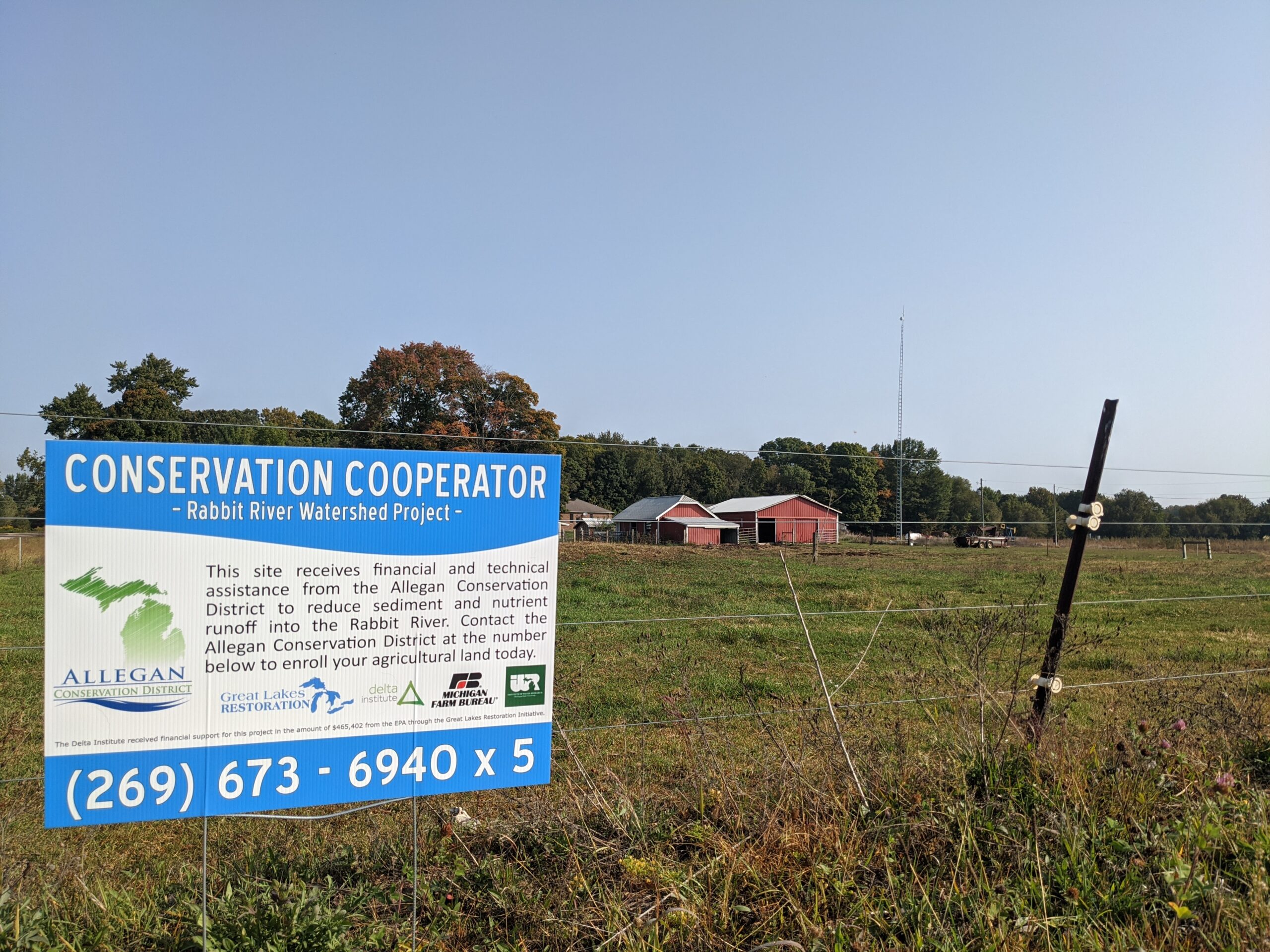
Photo by Brian Talsma, Allegan Conservation District
Why Our Work is Needed
This project addressed sediment loading associated with agricultural sources, such as cropland erosion, livestock access, and road/bridge crossings that impacts habitat and water quality in the Rabbit River through a performance-based program for implementing agricultural best management practices. In addition to targeting sedimentation, the project also provided co-benefits of addressing other pollutants such as nutrients and pathogens, largely stemming from livestock access, and pesticides/chemicals, resulting from cropland erosion.
Traditionally, conservation programs offer cost-sharing for approved practices with limited monitoring of environmental outcomes. Performance-based programs are a targeted approach to investing in conservation when when traditional funding is limited. Instead of paying for specific farm practices, this project directs payments that are based on the net environmental improvements resulting from a comprehensive set of practices.
Brief Overview of What We’re Doing
Through this project, farmers received payments to implement conservation practices on their cropland that are based on the estimated effectiveness of those practices. The project team developed and applied advanced modeling tools to estimate reductions. This approach marks a fundamental change from the traditional approach of paying farmers a percentage of the cost of implementing conservation practices.
This project has engaged producers to install best management practices on approximately 2,600 acres at priority locations in the Rabbit River watershed in order to reduce sediment loading by approximately 1,500 tons. It also provides a model performance based conservation programs and demonstrates the success of such programs.
Pay for Performance-focused conservation projects are an established area of Delta’s expertise, and both has been operated and is currently operating in other targeted Midwestern / Great Lakes geographies.
Partners
Delta is grateful to our project partners, including the Allegan County Conservation District, Michigan Farm Bureau, and the Michigan State University Water Resource Institute.
Funding
This project has been funded wholly or in part by the United States Environmental Protection Agency under assistance agreement GL00E02208 to Delta Institute. The contents of this document do not necessarily reflect the views and policies of the Environmental Protection Agency, nor does the EPA endorse trade names or recommend the use of commercial products mentioned in this document.

